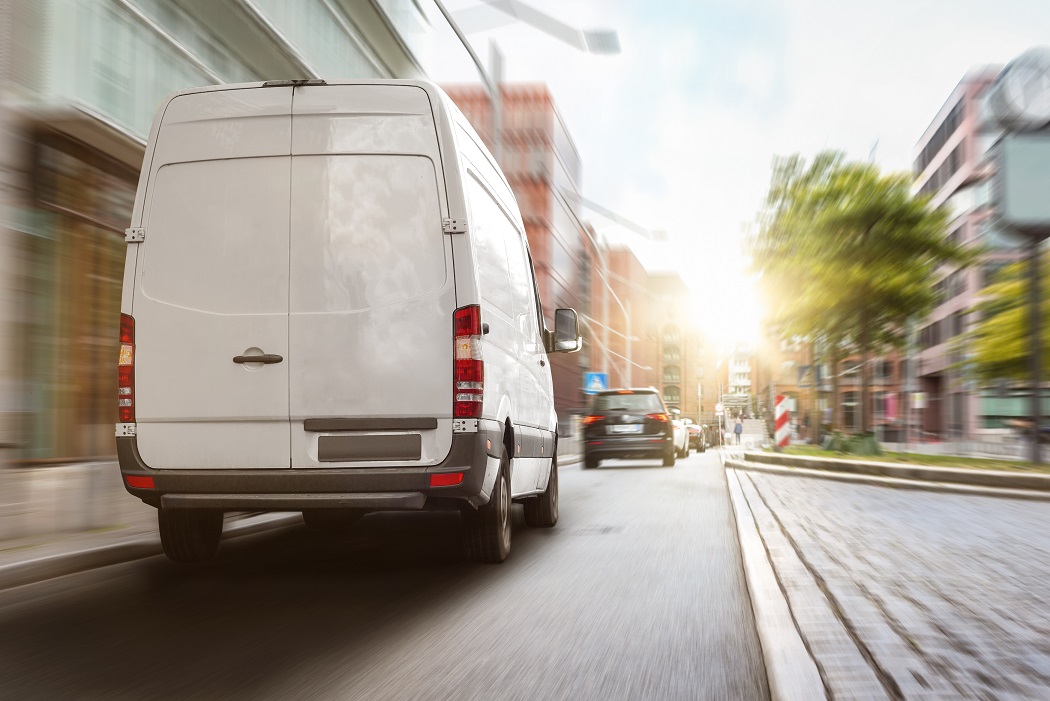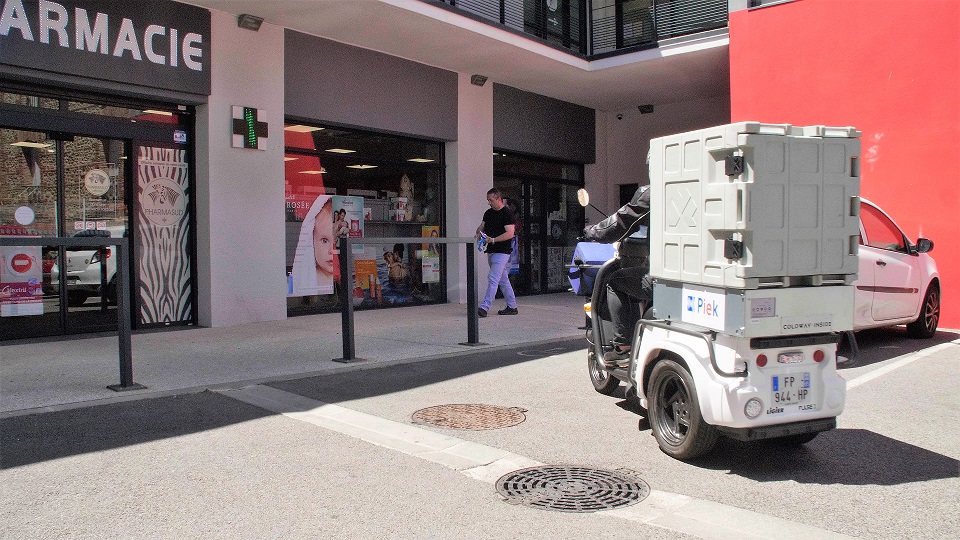What if refrigerated deliveries in the city were made by bike? This is the 20th edition of the European Week of Mobility and Sustainable Development, whose theme is "acting daily". This is an opportunity to look at the challenges of last-mile urban logistics in figures and to highlight Coldway Technologies' on-board refrigeration. Combining cold chain control and zero-emission ecological delivery, isn't that the key to taking action on a daily basis?
Two major European climate events are currently taking place:
 reness of sustainable development, promote concrete actions and mobilise people to achieve the 17 sustainable development goals of the Agenda 2030, adopted by the UN in 2015.
reness of sustainable development, promote concrete actions and mobilise people to achieve the 17 sustainable development goals of the Agenda 2030, adopted by the UN in 2015.
Sustainable mobility, decarbonization and the environment are themes anchored in the DNA of Coldway Technologies, whose vocation is to offer an autonomous, zero-emission on-board cooling technology for sustainable deliveries.
Logistics is one of the most essential sectors - as we saw during the Covid-19 health crisis - but also one of the most polluting.
This is especially true for the transport of cold-chain products, which requires the use of refrigerated vehicles that still consume a lot of energy.
A few figures from the site développement-durable.gouv.fr show how far we still have to go to reach the goal of carbon neutrality by 2050.
Breakdown of French GHG emissions by transport mode - France - 2018
Overall, the kilometres travelled by road vehicles increased by 41% between 1990 and 2018.
This increase can be explained by the disproportionate growth in deliveries in built-up areas.
Evolution of French GHG emissions from the transport sector by transport mode in France from 1990 to 2019
The growth of e-commerce, coupled with the democratisation of home delivery, has generated a considerable increase in delivery flows in cities.
n 2019, 50 million parcels were delivered, a growth of more than 10% (FEVAD figures, 2020). The growth of last-mile delivery is dazzling.
The Covid-19 crisis has accentuated the development of cold logistics in cities, in particular with the delivery of meals to the home, and the delivery of medicines, which is becoming more widespread.
This growth in deliverie s in urban areas implies problems of accessibility and congestion, which are accompanied by a heavy environmental impact and repeated nuisance for city dwellers:
s in urban areas implies problems of accessibility and congestion, which are accompanied by a heavy environmental impact and repeated nuisance for city dwellers:
These few key figures show the scale of the problem of goods transport in urban areas: on a national scale: last-mile logistics account for around 20% of traffic, occupy 30% of the road network, represent 50% of the diesel consumed in towns and cities and are responsible for 35% of CO2 emissions, according to the French Environment and Energy Management Agency (ADEME).
In a context marked by mobility and sustainable development, the last mile is a real challenge in urban logistics and delivery in city centres.
Every year in France, 100 million tonnes of products are distributed by refrigerated trucks. This figure could double by 2025, particularly because refrigerated transport plays a fundamental role in the food and pharmaceutical industries
In addition, regulations on refrigerants, environmental issues and the energy costs of refrigerated transport are leading players in cold logistics to reinvent themselves.
« The first challenge in transport is the replacement of refrigerants. Today, some of them still have a high GWP [Global Warming Potential]", Gérald Cavalier, President of Cemafroid-Tecnea, explained to VoxLog in the special report on cold logistics
Last-mile refrigerated logistics must evolve to meet:
Delivering fresh produce in the city using alternative means of transport while maintaining the same traceability as for an internal combustion vehicle is now possible with Coldway Technologies' on-board refrigeration system.
Coldway Technologies designs self-contained refrigeration units, assembled on containers or integrated into clean vehicles, for last-mile delivery using soft transport.
Bicycle-cargoes, electric scooters, electric vehicles, Coldway Technologies' autonomous refrigeration adapts to all means of transport to make deliveries in the city, day and night, without pollution, without noise pollution, in strict compliance with the temperature of the products transported.
Coldway Technology's refrigeration units are completely independent of the vehicle's batteries. They work with a natural refrigerant, which is favoured by government authorities as a replacement for HFCs.
A real ecological alternative to refrigerated vehicles, they offer perfect temperature control for single or multi-temperature transport, with an integrated traceability system.
Many communities and companies have adopted Coldway technology for the transport of food and pharmaceutical products.
In this week of sustainable development, what better way to take action than to choose an alternative refrigerated transport solution?
En effet, en restant sur ce navigateur vous ne bénéficiez pas d'une expérience optimale. Vous risquez de rencontrer quelques problèmes d'affichage ainsi qu'une baisse de performance. Pour y remédier, vous pouvez utiliser un navigateur plus récent qu'Internet Explorer 11 tel que Google Chrome ou encore Mozilla Firefox.